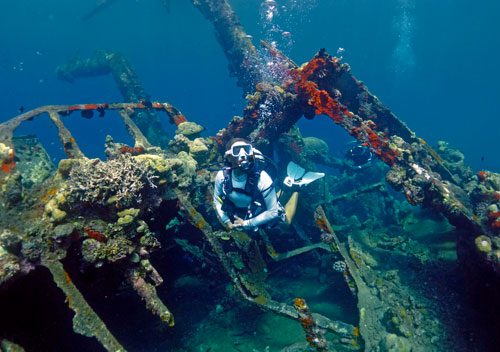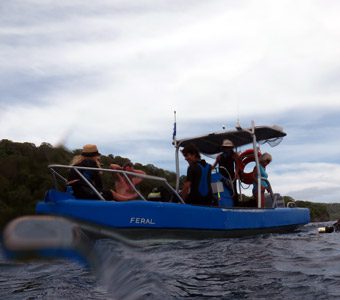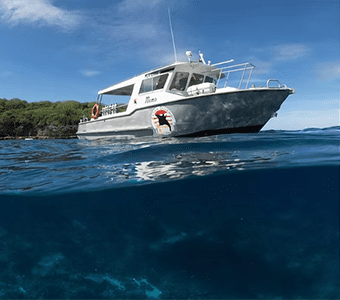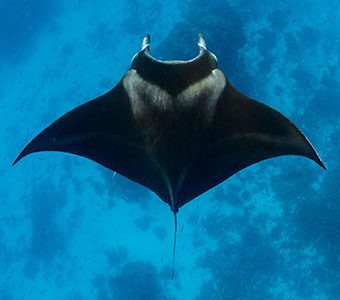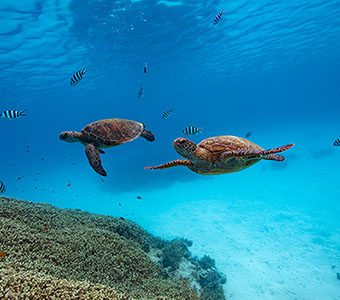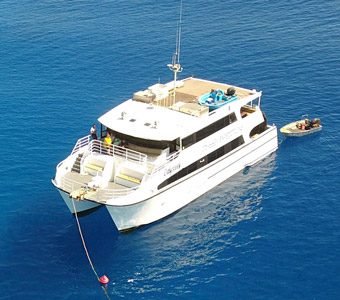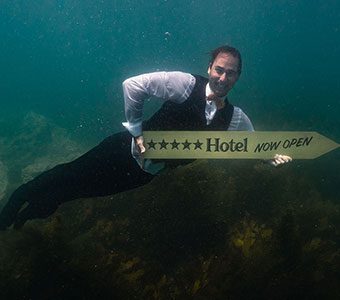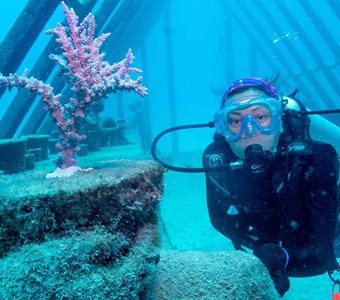It doesn’t really need to be said, but of course 2020 has been a year that we will never forget – and not in a good way! But as this (dare I say) ‘unprecedented’ year comes to a close, let’s try and celebrate the good things that happened. There were several initiatives this year that have inspired more ocean lovers and contributed to the protection of our oceans – here are just six.
1. Coral Spawning on the Great Barrier Reef.
In early December, the world’s biggest reproductive show took place on the Great Barrier Reef and for the first time ever, this surreal, yet beautiful spectacle was broadcast live from the Reef on ABC TV on Friday and Sunday nights, highlighting the plight of the Reef to thousands of viewers Australia-wide.
The program, which included information on some of the ground-breaking research being conducted to build resilience for the Reef, while the world battles climate change and appears to have inspired a whole lot more ocean advocates in the process!
According to Great Barrier Reef Marine Park Authority Chief Scientist; Dr David Wachenfeld;
“Year after year, [the spawning event] shows that despite the pressures on the Reef from climate change, there is still hope for the future. But we have to act now. We need the strongest possible global action to reduce greenhouse gas emissions, and everyone on our planet can play a role in delivering a healthy Reef for future generations. We encourage Australians to visit the Reef when travel is possible from their state – because when you see it and fall in love with it, you ultimately want to help protect it.”
If you missed it, watch it on ABC iview here.
2. The inaugural Great Reef Census
If 2020 is to be remembered for anything (other than Covid-19) then it is the inaugural Great Reef Census which brought together “every boat, every citizen, every reef.”
The Great Reef Census is a citizen science project managed by Citizens of the Great Barrier Reef, which is designed to capture large-scale reconnaissance data from across the Great Barrier Reef, helping to support reef research and management.
Comprising over 3000 individual reefs scattered across an area the size of New Zealand, capturing data in the form of images from across the Great Barrier Reef is an immense task, so this collaborative project was devised to bring together science, tourism and local communities to establish a scalable approach to conservation challenges, as well as foster a sense of stewardship for the Reef – and anyone can participate.
In February 2021, citizen scientists around the world are invited to view the images captured to help scientists analyze the data at greatreefcensus.org
3. A new generation of ocean lovers in the Solomon Islands
While the Solomon Islands’ international borders were closed, Dive Munda launched an initiative to train the youth of the Solomon Islands how to dive with a sponsorship program that many of their guests contributed to (including Diveplanit).
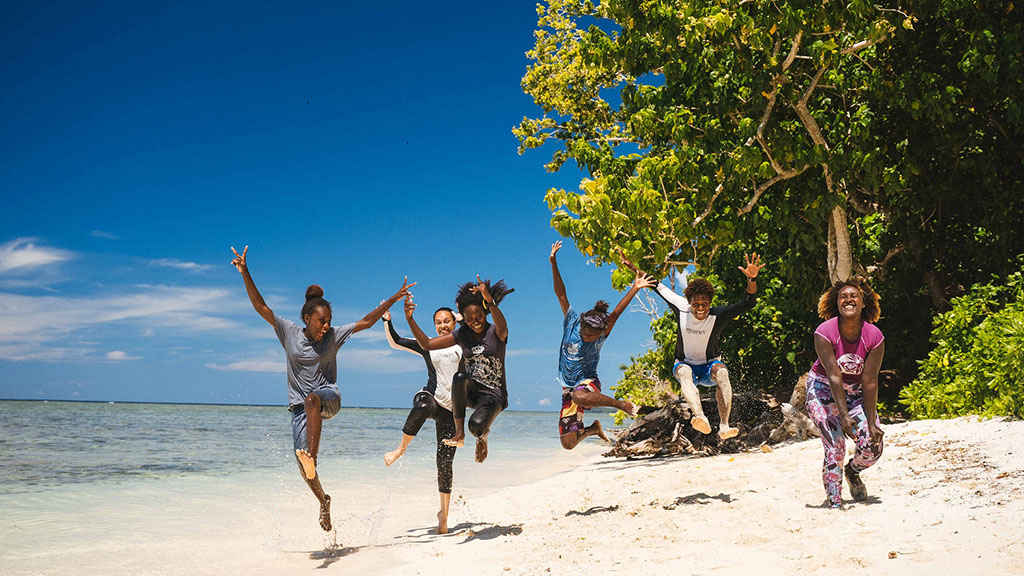
Sponsors were asked to sponsor a young local, between ages 12 and 25, to do an SSI Open Water Course for only AU$240. So far Dive Munda has received sponsorship for 95 kids and aims to train 105 before 2020 (finally) ends.
4. Australian States announce bans on single-use plastics.
With thanks in part to tireless campaigning by the Australian Marine Conservation Society (AMCS), from early next year, plastic straws, cutlery and drink stirrers will no longer be allowed in South Australia, stemming the flow of these dangerous plastics into our oceans and saving turtles and wildlife.
It won’t stop there – QLD, WA and the ACT have all committed to ban plastic too. In fact, Western Australia will ban more single-use plastics than any other state. Their plan would outlaw plastic plates, cutlery, stirrers, straws, thick plastic bags, polystyrene food containers and helium balloon releases by 2023.
5. Some good news for sharks.
The AMCS has had a few campaign-wins in the world of shark conservation too, with a new NSW grant program announced to install more drones and other non-lethal surveillance tools at NSW beaches. It is a step in the right direction towards science-backed safety strategies that work best for swimmers and wildlife, and will hopefully pave the way towards ditching ineffective, destructive shark nets from NSW waters.
And in the Great Barrier Reef Marine Park, the AMCS has successfully campaigned to end live shark finning. For years loopholes have allowed the illegal practice of live shark finning to slip under the radar in Queensland. By securing new rules requiring sharks to be brought to shore in one piece with their fins attached, fishers cannot cut the fin off a critically endangered scalloped hammerhead shark, dump its body, and pass it off as something else.
2020 also saw the premiere of the documentary ENVOY Shark Cull (now available on Stan), which has highlighted the plight of sharks in Australia to a much wider audience, with sell-out screenings around the country. The tell-all documentary is the result of seven years of gathering of covert footage, narrated by Eric Bana, and including testimony from shark advocates including Layne Beachley, Tom Carroll, Madison Stewart (Shark Girl) and Ocean Ramsey. Find out about the next screening near you.
6. Australians are starting to #HolidayHereThis Year
With international borders still closed for most of us, especially here in Australia, many Australians are starting to appreciate diving in their ‘own backyard’ so to speak. Local dive destinations that have been overlooked in favour of exotic locales such as Palau or Raja Ampat are now being recognized for the world-class diving that was there all along.
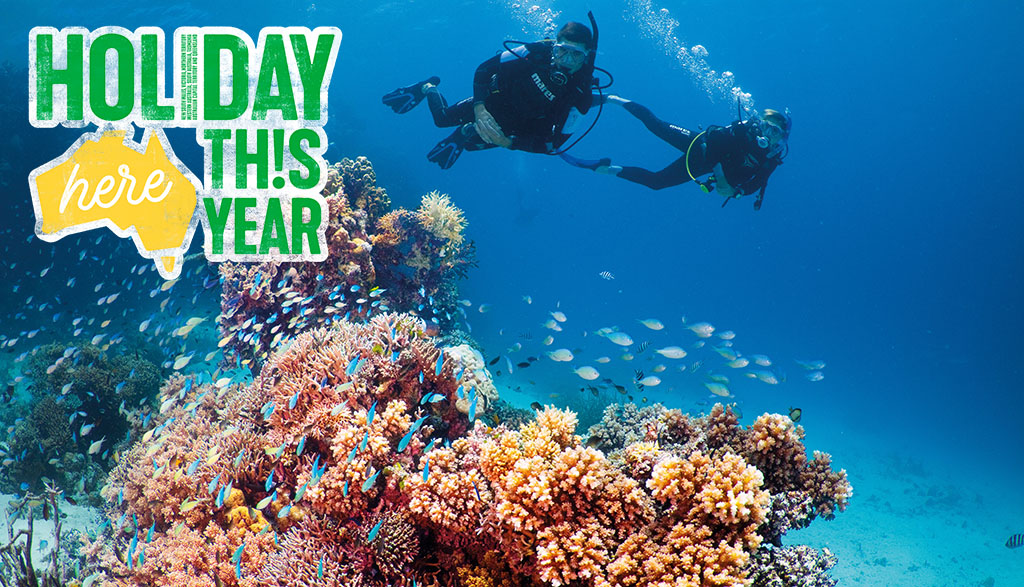
Like the pelagic action and pristine reefs of the Indian Ocean Territories, Christmas and Cocos Keeling Islands, and remote Rowley Shoals, which have never before been so popular, with some WA divers not having even heard of them before.
The mantas and turtles of Lady Elliot, Lady Musgrave Island and Heron Island in the Southern Great Barrier Reef are proving such a drawcard that the island resorts are booked out all summer. And Lord Howe Island, the only island accessible for NSW divers, is now fully booked until early May.
2021 may be a good time to book a marine life encounter like no other, right here in Australia.

